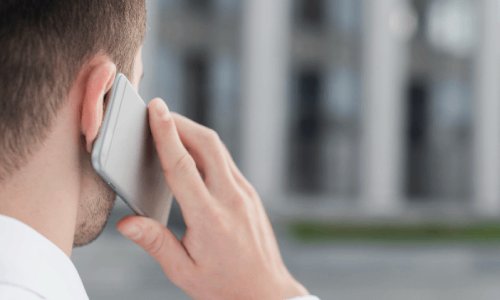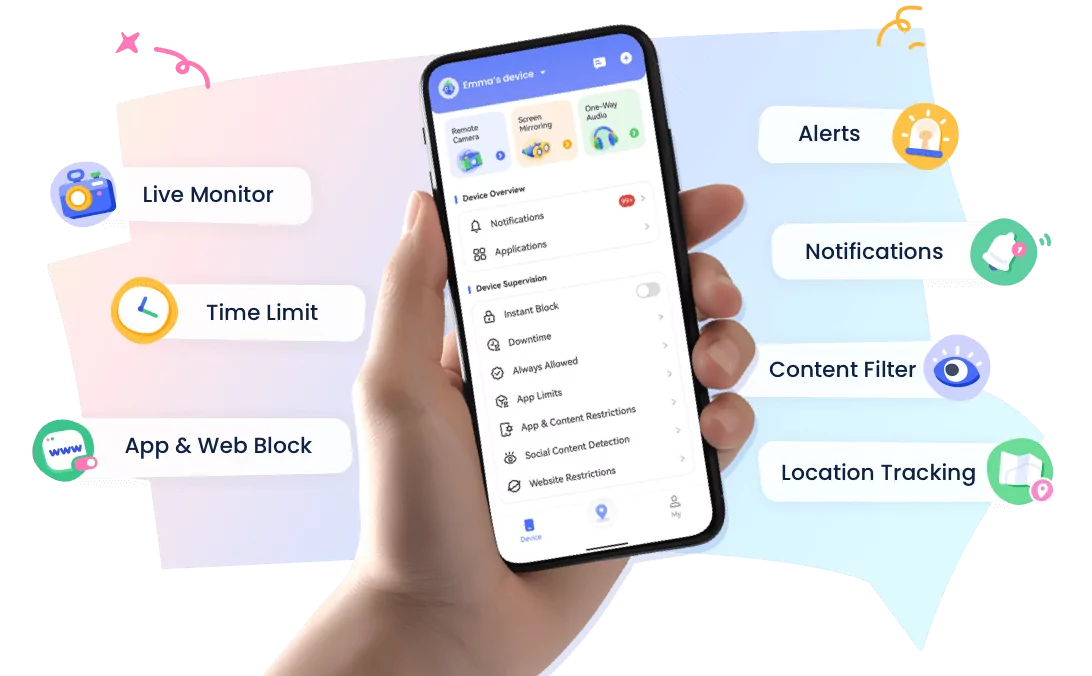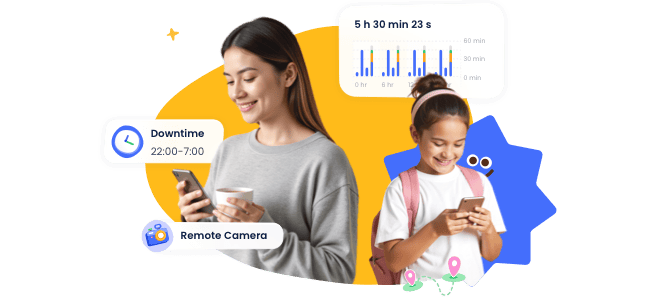Are All Phone Calls Recorded? Here's What You Need to Know
The question "Are all phone calls recorded?" often crosses our minds, especially with increasing concerns about privacy and surveillance. Whether you're worried about your personal calls, business conversations, or legal implications, knowing the facts about call recording is essential.
This article will explain when phone calls might be recorded, covering legal requirements and common scenarios. By the end, you'll better understand how to protect your privacy.

Concerns about Privacy
In most cases, people are worried about the call recording because they often talk about personal things over calls. If you have friends and family, you would know that those calls include anything and everything.
Worries about Personal Privacy
The knowledge that calls might be recorded can lead to self-censorship. People may be hesitant to express dissenting opinions or engage in frank conversations for fear of government monitoring. This can stifle open dialogue and democratic debate.
Who Can Listen to My Calls?
In most cases, there's a lack of clarity about who within the government has access to call recordings and under what circumstances. This opacity can result in distrust and makes it difficult to hold authorities accountable. Also, the possibility exists that recordings might be used for political purposes, to target dissidents, or even for personal gain.
How Recordings Can Be Misused
The risk of data breaches is ever-present. Hackers or malicious actors could gain access to sensitive call recordings. This can result in exposing private information and putting everyone at risk.
Not to forget, recordings can be easily taken out of context. This can lead to misunderstandings and accusations. Nuances in tone and nonverbal cues are lost in audio recordings, misrepresenting the true nature of a conversation.
Call Recording Laws
To be precise, it depends on the location because the laws are different everywhere.
What the Law Says
When it comes to call recording laws, there are two ways to go around it.
- One-party consent: In these jurisdictions, only one person on the call needs to be aware of and consent to the recording. This is the law at the federal level in the United States.
- Two-party consent: Everyone on the call must agree to be recorded. This is the law in some US states and many other countries.
Do You Need Permission?
When it comes to the United States, one-party consent is the federal law, but some states have stricter two-party consent requirements. You've to check the laws of your specific state.
The laws are different for other countries. Some countries have a complete ban on call recording, while others allow it with some consent requirements.
Different Countries, Different Rules
We have already mentioned that you have to think about your locations and the laws. We have given you a slight overview of call recording rules in the USA. For other countries, check this:
- Canada: One-party consent is generally required.
- European Union: All parties must consent under GDPR (General Data Protection Regulation).
- Australia: All parties must consent except in New South Wales and Tasmania (one-party consent).
Everyday Scenarios of Your Calls Might Be Recorded
There are different situations when your calls might be recorded. All of them have different reasons to do so.
Customer Service Calls
Most companies record calls for quality assurance purposes. This helps them train representatives, improve customer service processes, and resolve disputes. You'll hear a message at the beginning of the call informing you that the conversation is being recorded.
Work Calls
Some companies record work calls, especially those related to sales, customer support, or handling sensitive information. This can be for training, quality control, or legal purposes. Your employer should have a clear policy outlining when calls are recorded and how the recordings are used.
Unwanted Calls
Some robot-callers might record your voice responses, even if you don't engage in conversation. This can be used to verify your phone number and potentially target you with future unwanted calls.
Government Recording
In some countries, governments have the legal authority to record phone calls for national security purposes. This practice can be controversial due to privacy concerns. The laws around government call recording vary significantly depending on your location.
Common Myths about Call Recording
Call recording is used a lot. However, there's a lot of misinformation surrounding it. So, we are sharing some myths along with the realities.
Calls Are Always Recorded
Not all calls are recorded. It depends on the context and the laws in your area. Companies typically record customer service calls for quality assurance, but personal calls between friends likely aren't recorded.
You Need Permission to Record Every Call
Call recording consent laws vary by location. In some places, one-party consent is enough (you or the other person needs to be aware), while others require two-party consent (everyone on the call must agree).
Recordings Can't Be Used Against You
Recordings can be used in legal proceedings or disputes. They can be used as evidence to support claims or to verify the details of a conversation.
Only Businesses Record Calls
Governments in some countries have the authority to record calls for national security purposes. Also, some mobile apps offer call recording features, though their legality depends on your location's consent requirements.
How to Protect Your Privacy
At this point, you must have an answer to the question, "Are all phone conversations recorded?" For this reason, it's important that you know how to secure yourself as well.
Keep Your Calls Private
For private discussions, go for alternatives like secure messaging apps that offer end-to-end encryption. In addition, don't talk about personal things in public.
Know Your Rights
You should know about the call recording laws in your area. This will help you understand when consent is required and how recordings can be used.
Best Practices for Recording Calls
- Always disclose that you are recording the call. In addition, you should obtainconsent from everyone involved, following the laws of your location.
- Clearly label recordings with the date, participants, and purpose.
- Store recordings securely and limit access to those who need them.
- Have a clear plan for how long you will retain recordings and how you will securely delete them when they are no longer needed.
Final Words
So, are all phone calls recorded? Not really. Whether a call gets recorded depends on things like legal rules and the technology you’re using. Usually, calls aren’t recorded by default, and it often requires consent.
Businesses might record calls for quality checks, but they typically let you know. For personal use, there are apps that can help you record, but always make sure it’s legal where you are.
Safeguard Your Child's Privacy – Try This App
Provide your child with enhanced online safety and privacy with the AirDroid Parental Control app. This powerful tool ensures you can monitor their online activity and protect their personal information.














Leave a Reply.